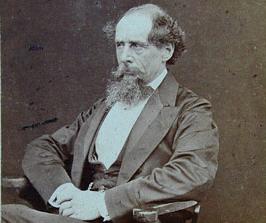What would Dickens think?

Two hundred years after his birth, it is an opportune time to reflect on how someone like Charles Dickens would look upon the current economic and social malaises in Irish society. Interestingly, Ireland featured very little in Dickens’s works during his lifetime, beyond the occasional stereotypical depictions in his works of stock Irish characters of the era. This is not to say that he held anti-Irish prejudices, but rather that he was a creature of his era and his attention was focused mainly on the plight of the urban poor in the growing industrial centres of England.
Were he to come back to life in the post-Celtic Tiger crash, Dickens would no doubt smile ruefully at the current cast of characters, so similar to some of his own fictional creations. For a start, there would be many candidates in our banking sector for the role of Uriah Heep. Scrooge is somewhere to be seen tucked away in our austerity-driven Department of Finance. Many Irish people too would see the likenesses of Squeers and Gradgrind among the members of the Troika.
The regret of many, however, must be that there were not more Micawbers around during our Celtic Tiger era urging caution, prudence and restraint. The Government approaching the Troika for an easing of the terms of the bailout would have been reminiscent of the gall of Oliver Twist proffering his porridge bowl and asking, ‘Please Sir, may I have some more?’ Despite the obvious seriousness of our situation, the scope for humour and biting social comment a la Dickens is clear.
Without doubt, Dickens would have been scathing about the folly and hubris of the rich and powerful who led the economy to its current sorry pass. Nor would it have surprised him to see the poor and vulnerable taking such a large part of the pain for the current economic adjustment. Despite the certainty of his righteous indignation, the fact that those chiefly responsible for the malaise got away relatively scot-free would equally cause him little surprise.
Although Dickens wrote about the ravages of 19th century industrialisation, urban squalour, overcrowding, deprivation and disease, he would quickly recognise its 21st century, post-Celtic Tiger equivalents. Ghost estates, ever-extending dole queues, increased homelessness and street begging would have filled him with the same ire for reform and social justice as did the urban squalor of Victorian Britain.
The social injustice of tax breaks for foreign executives and big retirement packages for senior public servants, while the poor experience the effects of cuts in social welfare, education and health spending, would have been too glaring for a Dickens transported to 21st century Ireland to ignore.
Something strongly suggests that Dickens would be unlikely to endorse the current austerity packages imposed on Ireland and other European countries at risk of default. For him, the current austerity measures would almost certainly have been missing the correct targets of responsibility. Yet, at the same time, his understanding of the role of power in society would have confirmed a belief in the inevitability of austerity packages being devised chiefly in the interests of society’s elites. Dickens was too much of a realist not to know that turkeys do not vote for Christmas. Shifting the onus of adjustment onto those least able to resist has been the marching tune of elites since the dawn of time. No doubt, the frantic efforts of European leaders at the series of crisis summits of recent months to secure permanent solutions to the Eurozone’s problems would have inspired many sardonic Dickensian caricatures. One wonders what he would have made of the tortuous choreography of the Merkel/Sarkozy axis – ripe for colourful caricature!
"Plus ca change, plus la meme chose" – the times change and technology changes, but essential principles remain the same over time. There was no one better than Dickens at seeing through the absurdities and vanities of power. Post-Celtic Tiger Ireland would have provided countless opportunities for Dickens’ incisive pen.
Image top: Penn State Special Collections Library.
